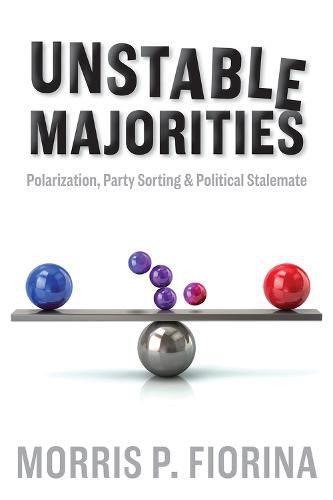Readings Newsletter
Become a Readings Member to make your shopping experience even easier.
Sign in or sign up for free!
You’re not far away from qualifying for FREE standard shipping within Australia
You’ve qualified for FREE standard shipping within Australia
The cart is loading…






America is currently fighting its second Civil War. Partisan politics are ripping this country apart. The 2016 election will go down as the most acrimonious presidential campaign of all. Such statements have become standard fare in American politics. In a time marked by gridlock and incivility, it seems the only thing Americans can agree on is this: we’re more divided today than we’ve ever been in our history. In Unstable Majorities Morris P. Fiorina surveys American political history to reveal that, in fact, the American public is not experiencing a period of unprecedented polarization. Bypassing the alarmism that defines contemporary punditry, he cites research and historical context that illuminate the forces that shape voting patterns, political parties, and voter behavior. By placing contemporary events in their proper context, he corrects widespread misconceptions and gives reasons to be optimistic about the future of American electoral politics.
$9.00 standard shipping within Australia
FREE standard shipping within Australia for orders over $100.00
Express & International shipping calculated at checkout
America is currently fighting its second Civil War. Partisan politics are ripping this country apart. The 2016 election will go down as the most acrimonious presidential campaign of all. Such statements have become standard fare in American politics. In a time marked by gridlock and incivility, it seems the only thing Americans can agree on is this: we’re more divided today than we’ve ever been in our history. In Unstable Majorities Morris P. Fiorina surveys American political history to reveal that, in fact, the American public is not experiencing a period of unprecedented polarization. Bypassing the alarmism that defines contemporary punditry, he cites research and historical context that illuminate the forces that shape voting patterns, political parties, and voter behavior. By placing contemporary events in their proper context, he corrects widespread misconceptions and gives reasons to be optimistic about the future of American electoral politics.